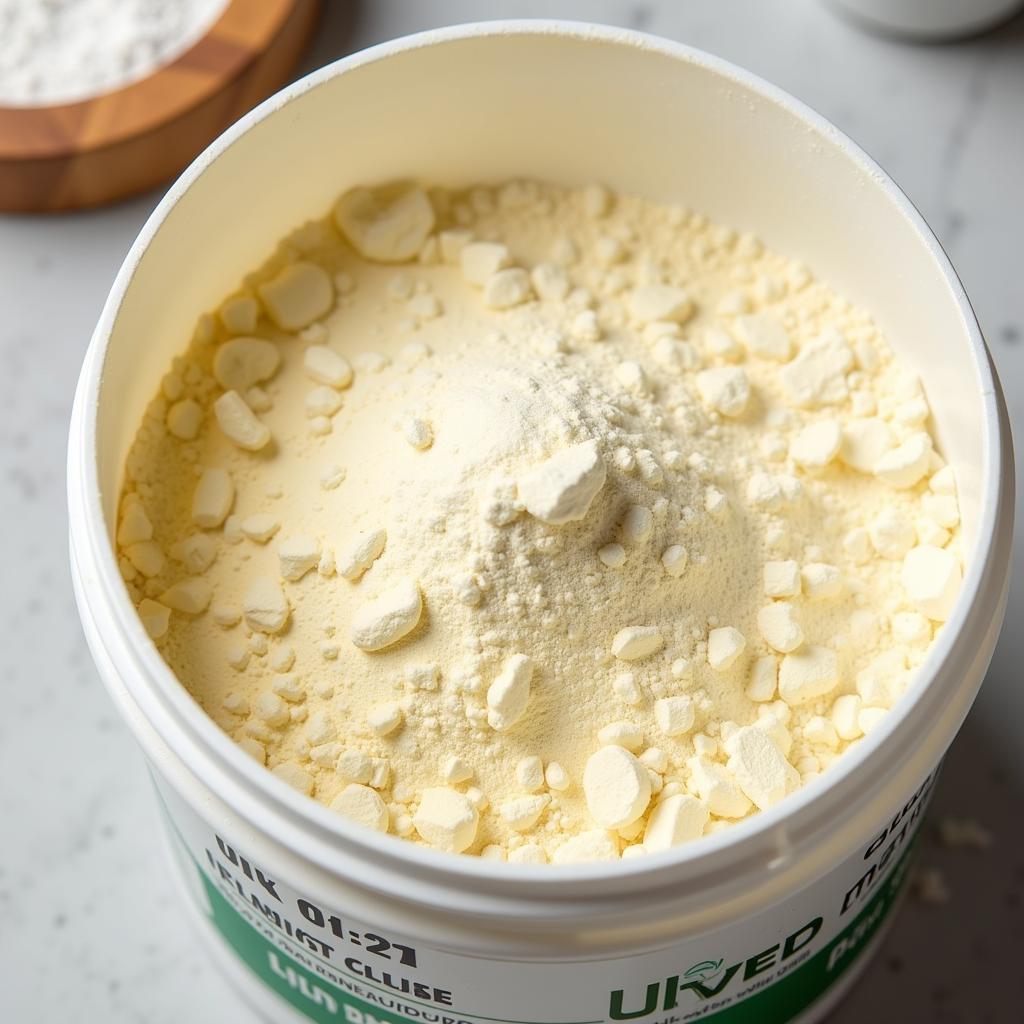Uniprim Dosage For Horses is a crucial aspect of equine health management. Understanding the correct dosage, administration, and potential side effects of this medication is vital for every horse owner. This guide provides in-depth information on Uniprim, empowering you to make informed decisions about your horse’s well-being.
Understanding Uniprim and Its Uses in Horses
Uniprim, also known as trimethoprim sulfa, is a combination antibiotic commonly used to treat various bacterial infections in horses. It works by inhibiting the growth and reproduction of bacteria. uniprim for horses This medication is effective against a broad spectrum of bacteria, making it a versatile choice for treating infections of the respiratory tract, urinary tract, skin, and soft tissues.
 Uniprim Powder for Horses
Uniprim Powder for Horses
Common Conditions Treated with Uniprim in Horses
- Respiratory infections: Uniprim can effectively treat pneumonia, bronchitis, and other respiratory infections caused by susceptible bacteria.
- Urinary tract infections: This medication is often prescribed for cystitis and other urinary tract infections in horses.
- Skin and soft tissue infections: Uniprim can be used to treat abscesses, wounds, and cellulitis.
- Strangles: In some cases, Uniprim may be used as part of a treatment plan for strangles, a highly contagious bacterial infection.
Determining the Correct Uniprim Dosage for Horses
The correct uniprim dosage for horses depends on several factors, including the horse’s weight, the severity of the infection, and the veterinarian’s professional judgment. uniprim for horses It’s crucial to consult with a veterinarian before administering Uniprim to your horse to determine the appropriate dosage and treatment duration.
Factors Influencing Uniprim Dosage
- Weight: The dosage is typically calculated based on the horse’s weight, ensuring the correct amount of medication is administered to achieve therapeutic levels.
- Severity of infection: More severe infections may require higher doses or a longer treatment duration.
- Veterinarian’s assessment: A veterinarian will consider the individual horse’s health status, medical history, and the specific infection being treated to determine the most appropriate dosage regimen.
Dr. Emily Carter, DVM, Equine Specialist, emphasizes the importance of accurate dosing: “Administering the correct dosage is essential for the effectiveness of Uniprim and to minimize the risk of side effects. Never guess the dosage; always consult with your veterinarian.”
Administering Uniprim to Horses
Uniprim is available in both oral paste and injectable forms. The method of administration will depend on the specific product and your veterinarian’s recommendation. Always follow the instructions provided by your veterinarian and the product label carefully.
Oral Administration
The oral paste is typically administered directly into the horse’s mouth using a dosing syringe. Ensure the horse swallows the entire dose.
Injectable Administration
Injectable Uniprim is administered intravenously (IV) or intramuscularly (IM) by a veterinarian.
Potential Side Effects and Precautions
While generally well-tolerated, Uniprim can occasionally cause side effects in horses. These may include:
- Diarrhea
- Loss of appetite
- Skin reactions
Dr. Sarah Miller, DVM, Equine Internal Medicine Specialist, advises: “Monitor your horse closely for any signs of adverse reactions while on Uniprim. If you observe any unusual symptoms, contact your veterinarian immediately.”
Conclusion
Uniprim dosage for horses requires careful consideration and veterinary guidance. By understanding the factors influencing dosage, administration methods, and potential side effects, you can contribute to your horse’s health and well-being. Remember to always consult with your veterinarian for personalized advice and treatment plans.
FAQ
- How long does it take for Uniprim to work in horses? It typically takes a few days to see improvement.
- Can Uniprim be used in pregnant mares? Consult your veterinarian for guidance.
- What should I do if my horse misses a dose of Uniprim? Contact your veterinarian for instructions.
- Can Uniprim be used with other medications? Discuss any other medications your horse is taking with your veterinarian.
- How is Uniprim stored? Store according to the product label instructions.
- What are the signs of an allergic reaction to Uniprim? Swelling, hives, difficulty breathing are signs of a serious reaction. Seek immediate veterinary attention.
- Is Uniprim effective against all types of bacterial infections in horses? No, it is effective against a broad spectrum, but not all bacteria.
Need further assistance? Contact us at Phone Number: 0772127271, Email: [email protected] or visit our address: QGM2+WX2, Vị Trung, Vị Thuỷ, Hậu Giang, Việt Nam. We have a 24/7 customer support team.